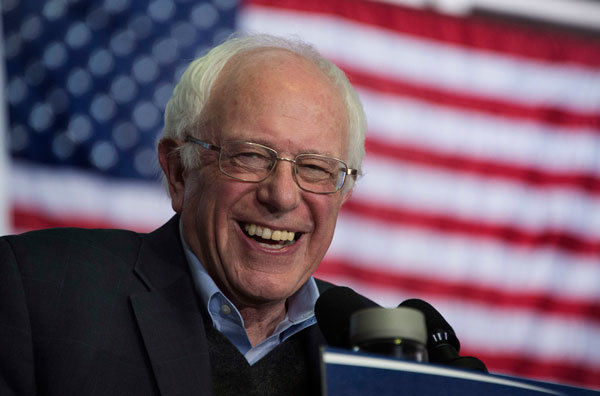Sanders Wins in West Virginia Democratic Primary

Vermont Sen. Bernie Sanders has won the West Virginia Democratic primary, NBC News projects, a victory that will add yet more fuel to his argument that he should remain in the race despite badly trailing front runner Hillary Clinton in the overall delegate count.
The win comes one week after Sanders prevailed in Indiana's Democratic primary and two weeks after Clinton dominated a series of contests in the northeastern United States.
Democrats also voted on Tuesday in a presidential "beauty contest" in Nebraska, although the delegates from that state were all previously assigned during a March 5 caucus. In that contest, Sanders won 15 pledged delegates, compared to 10 for Clinton.
"With this outcome, we now have won primaries and caucuses in 19 states," Sanders said in a statement after the results were in. "We are in this campaign to win the Democratic nomination and we're going to stay in the race until the last vote is cast."
At a rally in Salem, Ore., later, Sanders emphasized that he believes he has a better chance to beat Trump in November than Clinton.
"It is not only in national polls where we defeat Donald Trump by bigger numbers than Secretary Clinton, it is state poll after state poll after state poll," Sanders told the cheering crowd.
"Mr. Trump will not become president because the American people understand that our our strength is in our diversity," Sanders added.
Republican presumptive nominee Donald Trump, whose last remaining competitors exited the race after Trump's victory in Indiana last week, also won in West Virginia on Tuesday, easily. Trump also rolled to victory in Nebraska, where 36 delegates are at stake.
Sanders, long viewed as the front runner to win in the Mountain State, benefited from Clinton's missteps when speaking about the coal industry in mining-heavy West Virginia. While Clinton has proposed programs to help coal workers laid off due to a changing energy industry, she was haunted by her statement during a CNN town hall in March that "we're going to put a lot of coal miners and coal companies out of business."
Clinton's faltering is a marked difference from her performance in the state eight years ago, when she beat then-candidate Barack Obama by more than 40 percent. Exit polls suggested that race was a factor in the 2008 match-up between the two Democrats.
Exit polls Tuesday found only 33 percent of West Virginia Democrats are committed to voting Democrat in November. Around 27 percent of the state's Democrats said they would vote for Trump and 36 percent said it would depend.
While Sanders is likely poised for even more success later this month, with upcoming contests in Oregon and Kentucky, he has almost no chance of stopping Clinton from obtaining the majority of delegates required to clinch the Democratic nomination.
Sanders has consistently argued that his big crowds and small-dollar fundraising are evidence of a political revolution that Democratic officials are unfairly dismissing in favor of Clinton's political network. He also points to polls that show him performing better than Clinton against presumptive GOP nominee Donald Trump.
Still, he trails Clinton in both pledged and unpledged delegates to the Democratic National Convention.
Among pledged delegates, Clinton holds a lead of 282 over Sanders, meaning that he would have to win 65 percent of the remaining delegates to catch up.
When unbound elected officials, or "super delegates," are factored into the equation, Clinton only needs to gain 15 percent of the remaining delegates to clinch the nod.
Source: ( NBC )
Leave a Comment